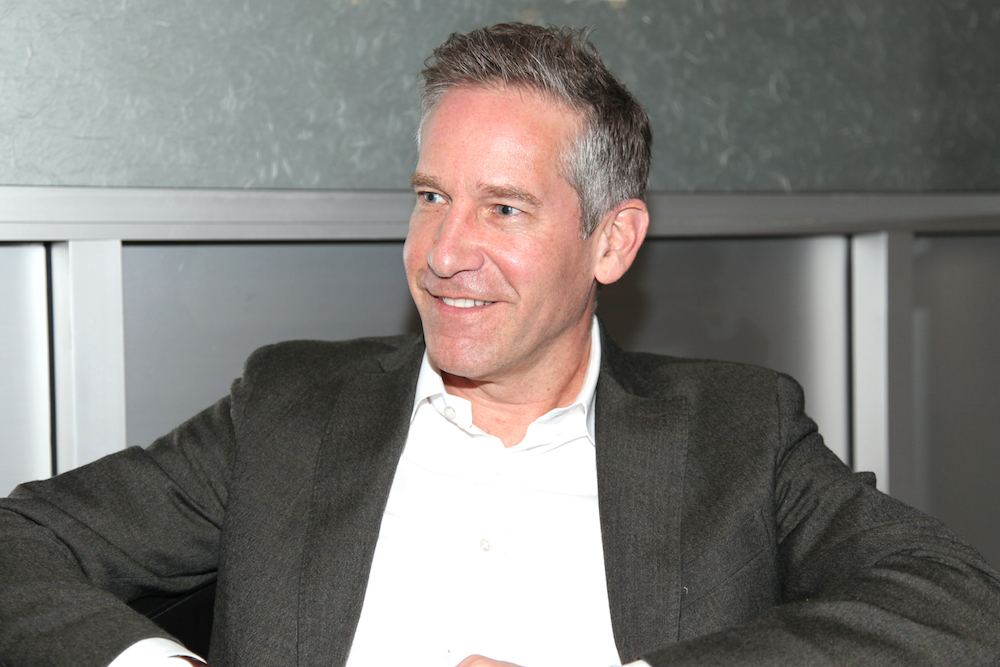
Photo by Aaron Salcido.
Kal Raustiala is a professor at UCLA School of Law and the UCLA International Institute, where he teaches in the Program on Global Studies. Since 2007 he has served as director of the UCLA Ronald W. Burkle Center for International Relations. Before taking part in a Zócalo/UCLA Downtown event, “Is America Enabling Autocrats to Run the World?” at the National Center for the Preservation of Democracy, in Little Tokyo in downtown Los Angeles, he spoke in the Zócalo green room about surfing, political science, and his favorite treaty.
What’s the last book you read?
Inherent Vice, by Thomas Pynchon. The one before that was Barbarian Days: A Surfing Life, by William Finnegan.
You have a background in law and political science. What’s the biggest difference between lawyers and political scientists?
Lawyers care more about fixing the world. Political scientists just want to understand it.
Who is the leader of the free world?
Angela Merkel.
Which language do you wish you spoke, but don’t?
Chinese.
Where were you happiest surfing?
Off Malibu.
If you were exiled from the U.S. and forced to become a citizen of another country, which one would you choose?
Australia.
You’re an expert in intellectual property. Has intellectual property ever started a war?
I really don’t think so.
Could it, say with China?
It becomes a bigger and bigger issue every day. It’s not crazy. To listen to Trump today, it’s not crazy. But no, I don’t think that’s going to happen.
Are attacks on globalization good or bad for global studies scholars?
I think they are good because they make people realize the stakes and they generate interest from students, which is good for us.
What’s your favorite place to eat in Westwood?
Northern Café, the Chinese place.
What’s your favorite treaty of all time?
The U.N. Charter. It’s got it all.



